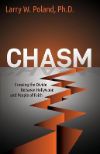- Author(s): Ebru Thwaites Dikena
- When: 2015-10
- Where: Source
Although modernity considers religion as a fable, religion has always been part of modern politics. The ‘return of religion’ in global politics, which marks the contemporary political and cultural imagination, accentuates this paradox. Religion has now become indispensible for the idea of truth. In this article, I approach this problematique by discussing the relationship between religion and art in terms of their relation to the idea of truth. In this respect, I focus on a Turkish film, Ulak (The Messenger), and analyze the film’s thought about religion and the link it establishes between the artistic/narrative fable and the idea of truth. The film’s choice of Gnosticism as the language of the dispossessed indicates a political position in relation to both the ‘return of religion’ and the popularity of the cultural turn in politics. On this basis, the article examines the film’s take on the concept of the event as a miracle (in religious messianism), contrasting it with the philosophy of revolution. Thus, it navigates the ambivalent border between art and non-art, between the mystic fable and politics. With modernity, it is said that, art has replaced religion and borrowed its sacredness. A reverse process in place today: a resacralization of art and politics. Art and religion share a common element: illusion. However, art profanes illusion, while religion sacralizes it. On this basis, the article concludes that Ulak is a cinematic form of antiphilosophy. It is a spectacular movie as a critique of institutional religion, yet it is captivated by the understanding of truth as a miracle, by the truth of the fable. Following Badiou, who views art as a truth procedure, one could say that Ulak’s potential to clarify the value of the truth event remains questionable.








